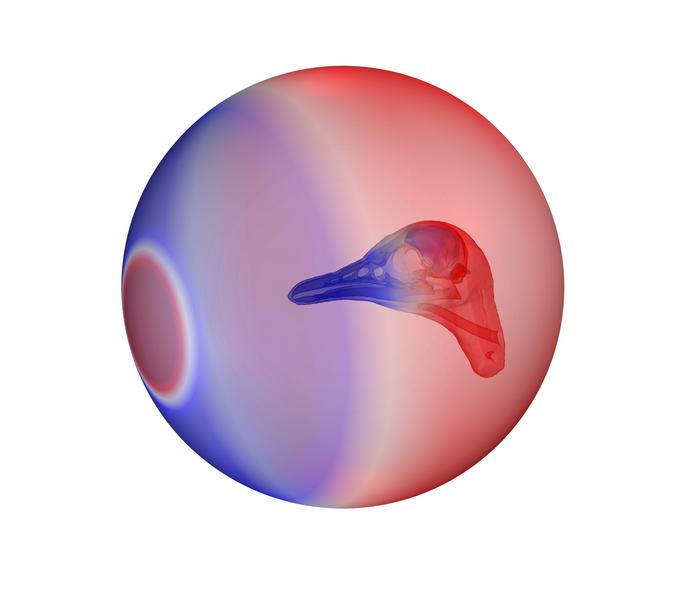Curtin University researchers have used state-of-the-art imaging technology to shed light on the hearing sensitivity of Australian Little Penguins and the danger of marine noise pollution.

Credit: Dr Chong Wei
Curtin University researchers have used state-of-the-art imaging technology to shed light on the hearing sensitivity of Australian Little Penguins and the danger of marine noise pollution.
Supported by the Western Australian Marine Science Institution’s Westport program, the study is the first to detail how Little Penguins, also known as fairy penguins, perceive sound both in air and under water.
Study lead Dr Chong Wei, from Curtin’s Centre for Marine Science and Technology, said Little Penguins are particularly vulnerable to human-made noise as their habitats often overlap with shipping lanes, recreational activities and coastal developments.
“Ocean noise pollution is steadily increasing and this is particularly concerning for Little Penguins whose populations are significantly declining,” Dr Wei said.
“We know very little about the impact of this noise on penguin hearing. To address this, we created 3D digital models using microCT scans of the heads of three Little Penguins that had died naturally at Garden Island to simulate what they can hear at different frequencies.
“Units of frequency are called hertz (Hz) and these 3D models revealed that Little Penguins can hear sounds across a broad range between 200 and 6,000 Hz under water, similar to other diving birds like the Great Cormorant.
“Vessel noise typically ranges from 20 to 10,000 Hz, as does pile driving.”
Co-author John Curtin Distinguished Professor Christine Erbe, from Curtin’s Centre for Marine Science and Technology, said the research findings are valuable for marine conservation efforts.
“Continuous exposure to high noise levels from passing vessels and near-shore construction might increase stress and interfere with Little Penguin behaviours such as feeding,” Professor Erbe said.
“Understanding their hearing range helps us identify potentially harmful noise frequencies and the results can inform management plans aimed at reducing the impact of noise pollution.”
The research titled “Sound reception and hearing capabilities in the Little Penguin (Eudyptula minor): first predicted in-air and underwater audiograms” has been published in the journal Royal Society Open Science and can be found here.
Journal
Royal Society Open Science
Method of Research
Imaging analysis
Subject of Research
Animals
Article Title
Sound reception and hearing capabilities in the Little Penguin (Eudyptula minor): first predicted in-air and underwater audiograms
Article Publication Date
28-Aug-2024



